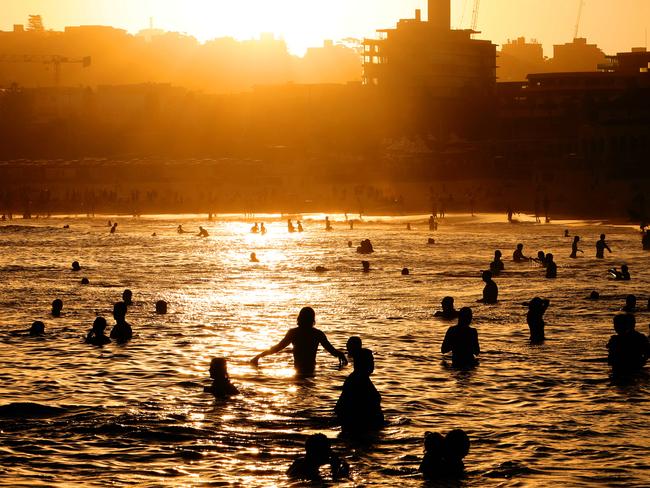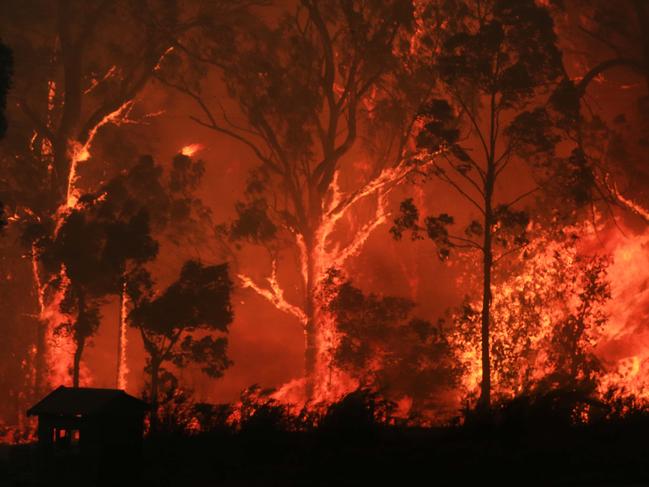‘Up the proverbial creek’: Gen Z set for huge climate hit
A new UN climate report poses a nightmare scenario of rising sea levels, threats to human health and ongoing extreme weather. Have your say.
World
Don't miss out on the headlines from World. Followed categories will be added to My News.
The growth of greenhouse gases is slowing, according to a landmark climate report, but temperatures will still be 1.5° Celsius higher by 2030 if dramatic action is not taken.
The latest synthesis report, by the International Panel on Climate Change (IPCC), has warned more than three billion people live in places that are “highly vulnerable” to climate change.
“We’re up the proverbial creek – but we do have a paddle,” IPCC co-author Professor Frank Jotzo from the ANU Institute for Climate, Energy and Disaster Solutions said.
While the IPCC says the pace of the growth of greenhouse gases in the atmosphere is slowing, our current trajectory will still take the planet beyond 2°C degrees of warming – a nightmare scenario of rising sea levels, threats to human health and ongoing extreme weather events.
Illustrating how the 1.1°C degrees of warming that has already occurred is impacting life on planet Earth, the report stated that a child born now will, during the course of their life, likely experience three to four times the number of extreme weather events that their grandparents experienced, because of the worsening effects of climate change.
ANU Professor Mark Howden, who is a Vice Chair of the IPCC Working Group on impacts and adaptation, said the report — compiled by 93 scientists and overseen by 47 governments — “triggers many alarm bells that we cannot afford to ignore”.
“In almost all emission scenarios global warming reaches 1.5° Celsius in the first half of the 2030s,” he said.
“The choices we take now will have consequences in coming decades and potentially for
thousands of years.”


Professor Jotzo said the report made it clear that “every tonne of emissions avoided means less warming”.
“Meanwhile, the amount of future carbon emissions we have ‘in the bank’ has greatly
diminished. If we keep going as we are, we won’t be able to keep global temperature rises to
below 1.5° Celsius,” he said.
The report, approved at the end of a week-long conference in Interlaken, Switzerland, and released just after midnight on Tuesday, AEDT, also raises questions about justice, with many developing countries copping the worst effects of climate change.
IPCC author Aditi Mukherji said “those who have contributed least to climate change are being disproportionately affected”.
“Almost half of the world’s population lives in regions that are highly vulnerable to climate change. In the last decade, deaths from floods, droughts and storms were 15 times higher in highly vulnerable regions,“ she said.
Between 3.3–3.6 billion people (41-45 per cent of the Earth’s population) live in contexts that are “highly vulnerable to climate change,” the IPCC stated in its report.
WHAT THE IPCC SAID
Overall global surface temperature has increased 1.09°C (on land the figure is 1.59°C and on ocean surfaces it is 0.88°C)

In 2019, atmospheric CO2 concentrations (410 parts per 22 million) were higher than at any time in at least 2 million years.
Meanwhile concentrations of methane (1866 parts per billion) and nitrous oxide (332 parts per billion) were higher in 2019 than at any time in at least 800,000 years.
To date, just 18 countries have sustained reductions in CO2 and overall greenhouse gas emissions for longer than 10 years.

In the near term, global warming is “more likely than not” to reach 1.5°C even under very low greenhouse gas emission scenarios, and “likely” or “very likely” to exceed 1.5°C under higher emissions scenarios.
Global mean sea level increased by 0.20m between 1901 and 2018. The average rate of sea level rise was 1.3mm a year between 1901 and 1971, increasing to 1.9mm a year between 1971 and 2006, and 3.7mm a year between 2006 and 2018.
Due to relative sea level rise, current 1-in-100 year extreme sea level events are projected to occur at least annually in more than half of all tide gauge locations by 2100 under all considered scenarios.
At sustained warming levels between 2-3°C, the Greenland and West Antarctic ice sheets will be lost “almost completely and irreversibly”.
More Coverage
Originally published as ‘Up the proverbial creek’: Gen Z set for huge climate hit





